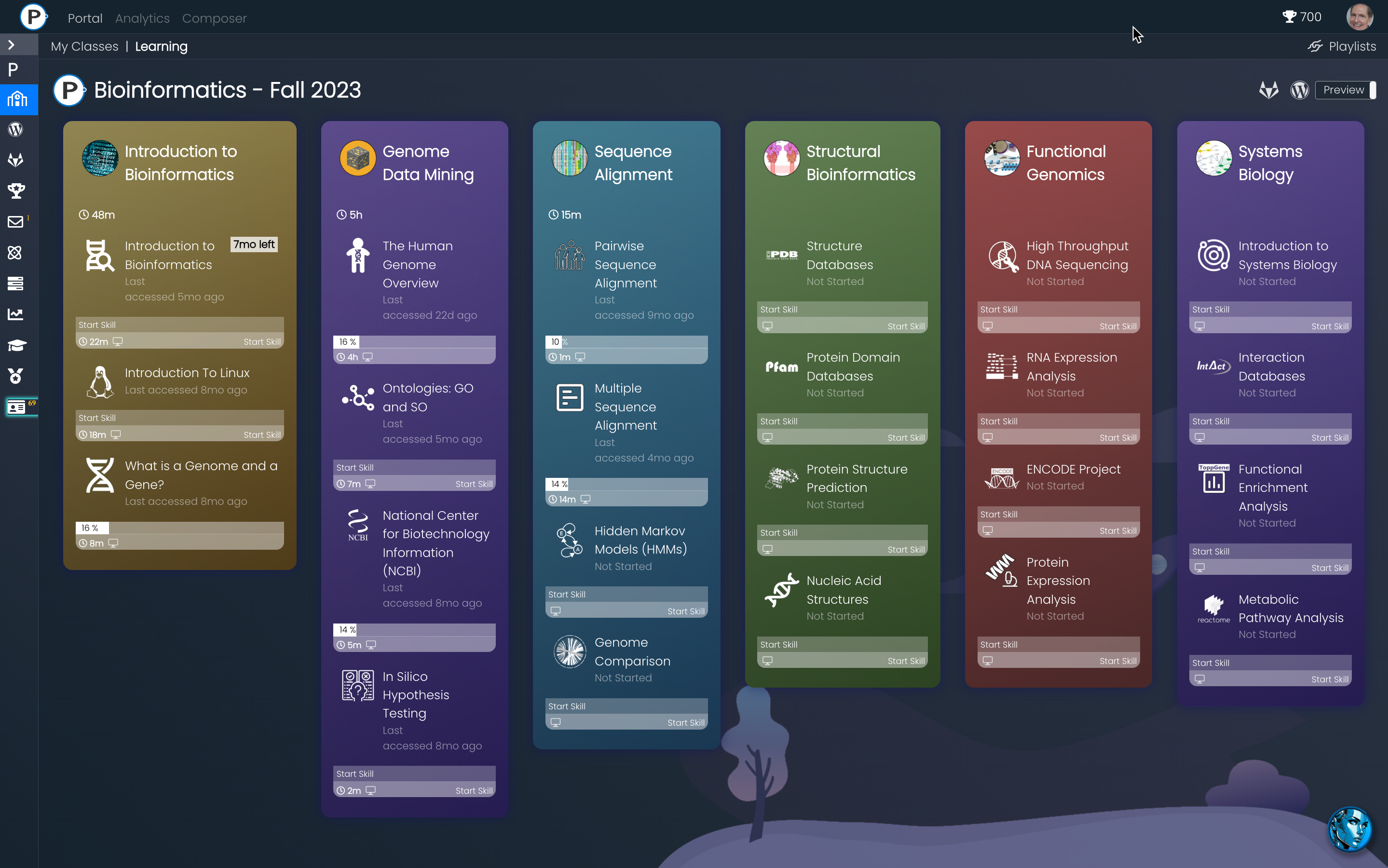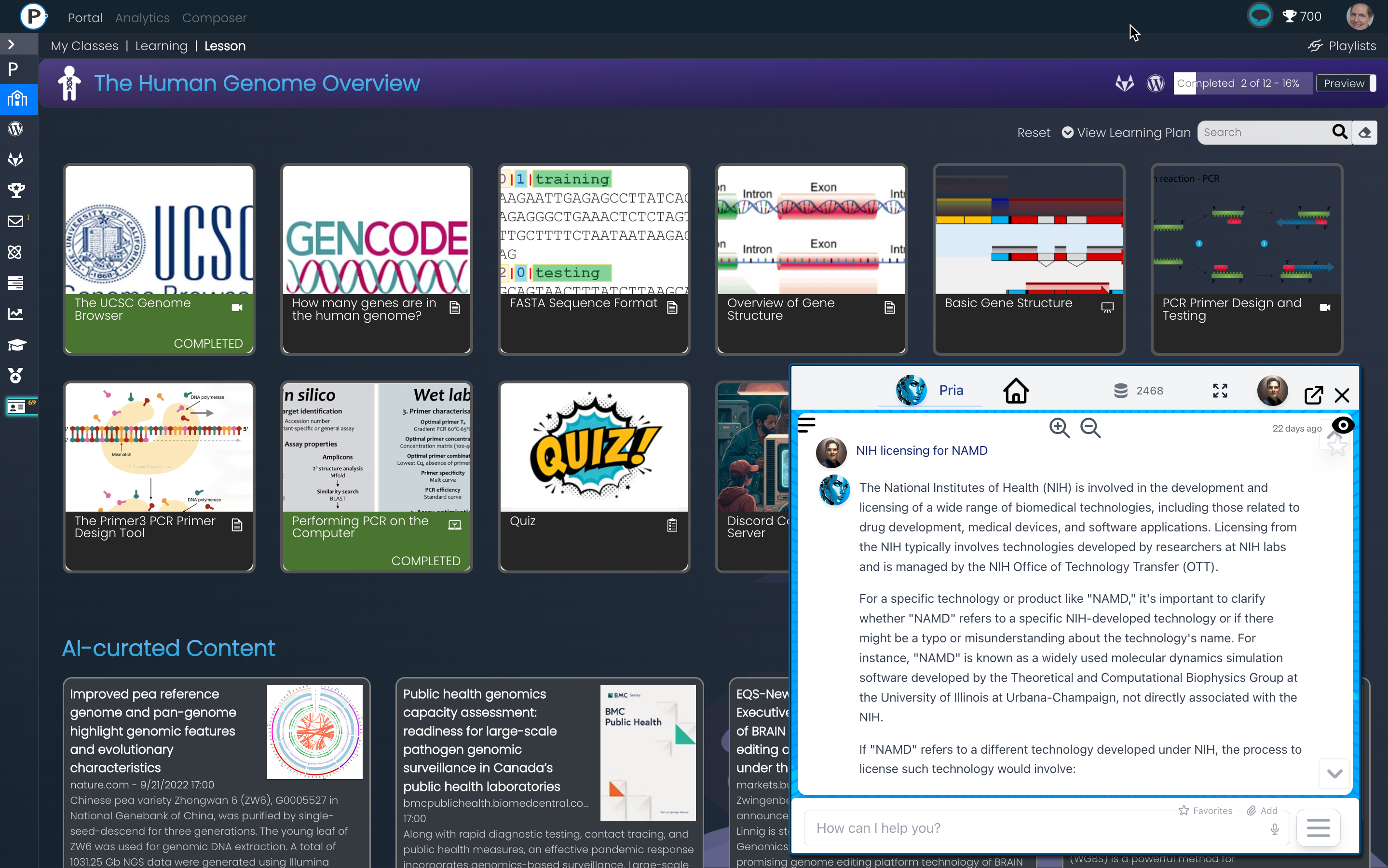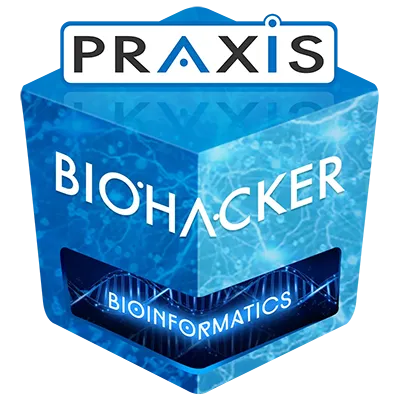Digital Biology/Informatics
Dr. Alex Feltus leverages AI-powered curation, multisensory online resources, quizzes, and expert mentoring to teach students how to use bioinformatics workflows to solve today’s toughest genomics problems. Students will explore how Linux, Jupyter Notebooks, and Python impact biosciences and genomics. They will gain insights into genome data mining, structural bioinformatics, and systems biology using data-intensive hands-on labs and AI-powered collaboration. Qualifies for the BioHacker: Bioinformatics digital badge.
Course Details
The online program is available 24x7x365 via any web browser or mobile device and includes six (6) learning paths, twenty-three (23) lessons, and over seventy-five (75) hours of learning material. Below is a list of the main topics:
●
Introduction to Bioinformatics
●
Genome Data Mining
●
Sequence Alignment
●
Structural Bioinformatics
●
Functional Genomics
●
Systems Biology
Bioinformatics is a dynamic scientific discipline that utilizes computational and statistical methods for solving biological problems. A major theme in bioinformatics is to integrate and understand biological data generated by genome sequencing projects and other high-throughput molecular biology efforts. Bioinformatics tools are developed to reveal fundamental mechanisms underlying the structure and function of macromolecules, biochemical pathways, disease processes, and genome evolution.
Although many bioinformatics problems are solved by computation and programming, this course itself does not require (practical) computer programming. However, it is expected that students will learn how to use the available bioinformatics software to solve biological problems. The aim is to emphasize critical thinking: understanding how these tools work in principle and developing a computational mind for biological problems. Foundational topics to be discussed in the course include sequence analysis & algorithms, gene annotation, protein sequence analysis, proteomics, gene expression analysis, comparative genomics, genetic networks and pathways analysis, and systems biology.
Journey Architecture

Skills and Resources

Digital Credential

Earners of the Bioinformatics BioHacker credential have successfully demonstrated experiential skills in computational biology, genome data mining, structural bioinformatics, and systems biology. The Bioinformatics badge requires 75+ hours of hands-on activities and labs across 20+ skills in biotech R&D. The Bioinformatics BioHacker credential was built in collaboration with world renowned professor Alex Feltus, currently at Clemson University.
Following is summary of the earning criteria for the BioHackers: Bioinformatics digital credential:
●
Complete 20+ hands-on bioinformatics labs using live biological computing systems
●
AND – Complete all required learning resources in the Bioinformatics online journey – 20+ lessons – including, videos, articles, activities, and discussion posts
●
AND – Pass short assessments (80% or better) in all lessons
●
AND – Participate in weekly virtual collaboration sessions with instructor(s), mentor(s), and peers
●
AND – Conduct original computational biology research using the skills, resources, and tools within the Bioinformatics journey